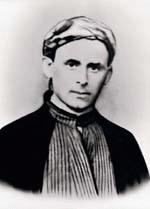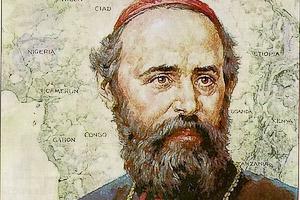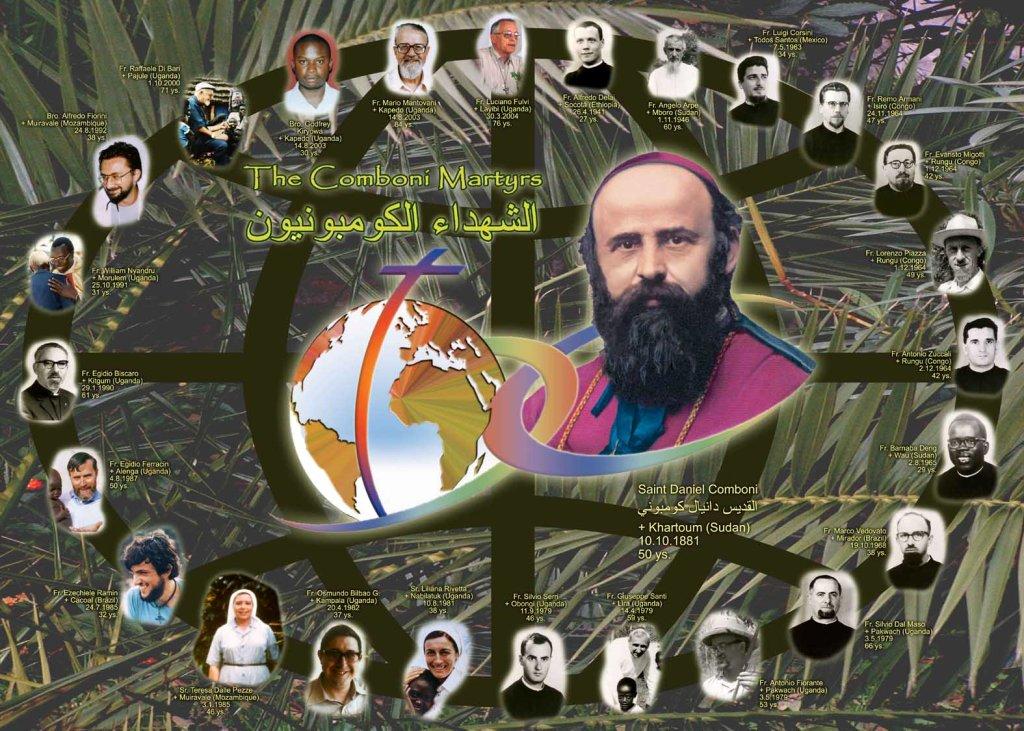Daniel Comboni
Comboni Missionaries
Institutional area
Other links
Newsletter
"Night and day, sun and rain, will find me equally and always ready to help in your spiritual needs: the rich and the poor, the healthy and the sick, the young and the old, the master and the servant will always have equal access to my heart".
 From Mazza Comboni learned, as he himself wrote, "to keep one's eyes fixed on Jesus Christ". This gaze, and the "yes" to Christ, became for him a constant reminder of his life and vocation; they enabled him constantly to be able to give a meaning to everything that he undertook. As he wrote in one of the key moments in his life, they led him to "judge all things, and the African world, not by the wisdom that comes from the world, but by the pure light of Faith"; to see that world "not through the philanthropy or the interests of explorers, politicians and economists, but through the Mystery of Jesus Christ Crucified", as he wrote in the introduction to his Plan for the Regeneration of Africa (1864).
From Mazza Comboni learned, as he himself wrote, "to keep one's eyes fixed on Jesus Christ". This gaze, and the "yes" to Christ, became for him a constant reminder of his life and vocation; they enabled him constantly to be able to give a meaning to everything that he undertook. As he wrote in one of the key moments in his life, they led him to "judge all things, and the African world, not by the wisdom that comes from the world, but by the pure light of Faith"; to see that world "not through the philanthropy or the interests of explorers, politicians and economists, but through the Mystery of Jesus Christ Crucified", as he wrote in the introduction to his Plan for the Regeneration of Africa (1864).
When he is made Bishop of Central Africa and returns to Africa by the usual arduous route, he addresses the few members of his flock: "I left my heart among you [...] and today at last I get it back by returning to you. I am returning among you, never to cease to be yours [...]. “Night and day, sun and rain, will find me equally and always ready to help in your spiritual needs: the rich and the poor, the healthy and the sick, the young and the old, the master and the servant will always have equal access to my heart”. Your good will be my good and your anguish will also be mine. I intend to make common cause with each one of you, and the happiest of my days will be the one on which I will be able to give my life for you." Indeed, the one thing that mattered to him, as he wrote from Khartoum a month before his death "is that Nigrizia [a word that refers to the totality of black people] be converted; [...] this has been the only, the true passion of my whole life, and will be so until I die, and I am not ashamed in the slightest [to declare it]". As he wrote in 1864, he had a clear conception that the missionary had to be the tangible embrace into which Christ takes the peoples of Africa; the sole aim of his life had to be "to bring them the Kiss of Peace of Christ."




